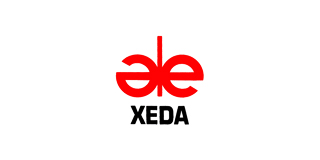

Xeda International
Packaging
What are the advantages of compostable labels?
Xeda offers an extensive range of compostable labels for the fresh produce industry

In a world that is increasingly environmentally aware, the search for sustainable alternatives has become a priority across all industries. Agriculture, in particular, has been carefully evaluating its practices and materials, with packaging, especially labels, gaining significance.
Conventional labels, often made from non-biodegradable plastic materials, have significantly contributed to the environmental crisis. From resource extraction to waste accumulation, the life cycle of these labels poses considerable challenges.
Environmental Issues Associated with Conventional Labels
- Persistent plastic waste: The plastic used in conventional labels can take hundreds of years to decompose, significantly contributing to the growing accumulation of plastic waste worldwide.
- Consumption of non-renewable resources: The manufacturing of plastic labels involves the extraction and processing of non-renewable resources, such as petroleum, gradually depleting these valuable resources and perpetuating dependence on finite raw materials.
- Impact on marine and terrestrial life: Plastic waste from conventional labels negatively impacts marine and terrestrial life, wreaking havoc on ecosystems and posing a direct threat to biodiversity. This impact extends throughout the food chain, generating long-term consequences for natural ecosystems.
The Transformative Role of Compostable Labels
In response to these challenges, compostable labels have emerged as a promising and sustainable alternative. Crafted from biodegradable materials, these labels provide a solution to the problem of persistent plastic waste and reduce dependence on non-renewable resources.
Advantages of Biodegradable Labels:
- Rapid biodegradability: Compostable labels naturally decompose in a short period, transforming into beneficial nutrients for the soil. This accelerated process contrasts with the long-term persistence of conventional labels, offering an effective solution for waste management.
- Carbon footprint reduction: The manufacturing of compostable labels generally requires less energy compared to conventional labels, significantly contributing to a lower carbon footprint. This energy efficiency translates into environmental benefits throughout the product's life cycle.
- Promotion of the circular economy: By integrating into composting systems, these labels close the product life cycle, contributing to a more circular and sustainable economy. This approach promotes material reuse, reduces dependence on virgin resources, and strengthens long-term sustainability.
Xeda Ibérica, Your Partner in Agricultural Sustainability
The transition to compostable labels is essential in agriculture, and Xeda Ibérica is at the forefront of this green revolution. With customized solutions and years of experience, Xeda Ibérica stands as your reliable ally in the successful implementation of compostable labels.
By choosing Xeda Ibérica, you not only opt for high-quality labels but also actively contribute to a more ecological agricultural future. Discover how we can be your partner in building a sustainable tomorrow.
About Xeda Ibérica
Xeda Ibérica S.L. operates as a subsidiary of Xeda Internacional, S.A., established in 1986. Its primary focus lies in the post-harvest sector, where it markets an extensive range of phytosanitary and natural products (continuously under development), with a notable presence in the citrus, pear, apple, and potato industries. Boasting over 20 years of experience, Xeda Ibérica provides services in horticulture and disinfection, exclusively distributing Pulsfog thermal fogging machines for Spain and Portugal. These machines are produced by PulsFOG Dr. Stahl & Sohn GmbH, headquartered in Überlingen, Germany.













